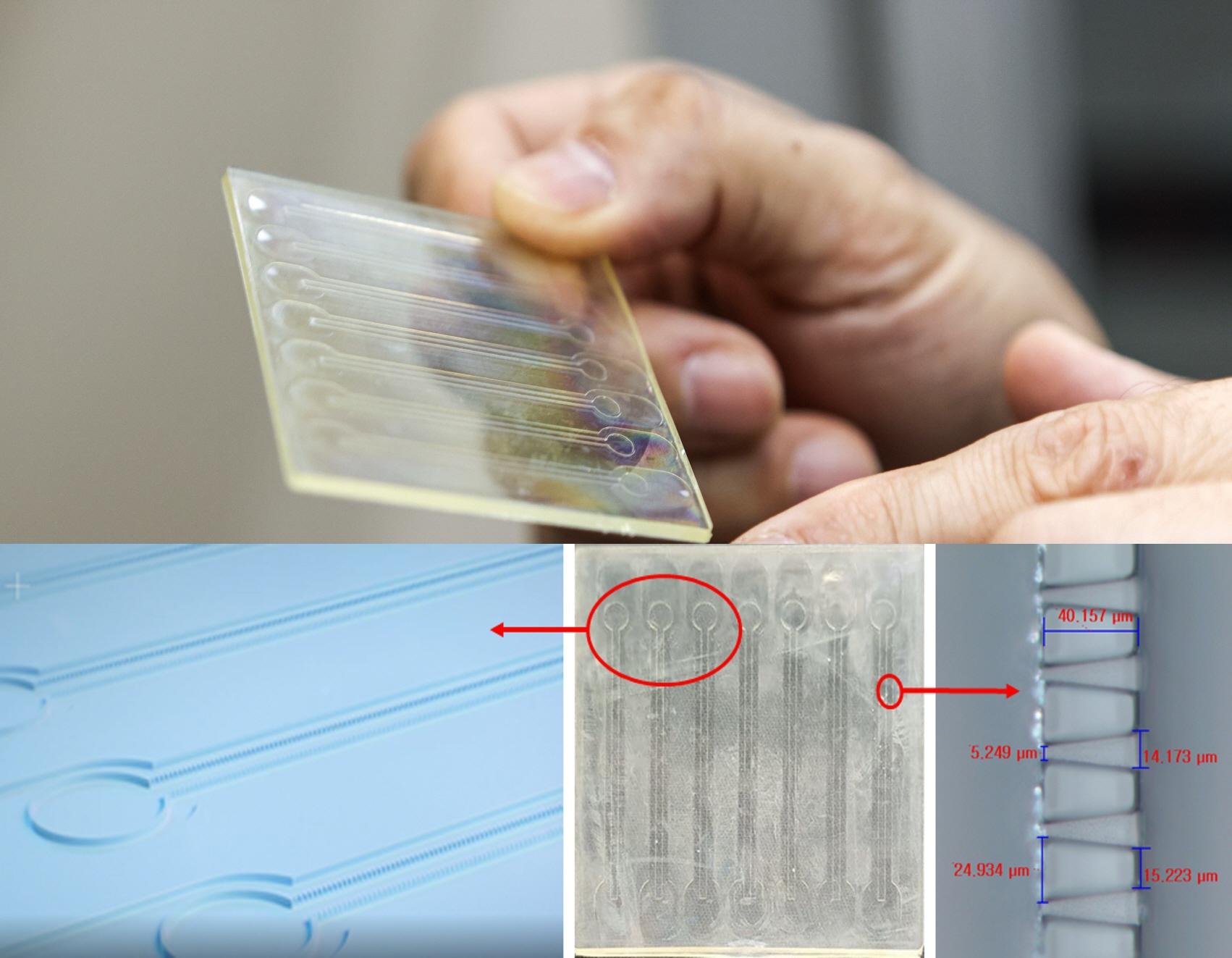Korea Institute of Machinery and Materials
The Korea Institute of Machinery and Materials (KIMM), an institute under the jurisdiction of the Ministry of Science and ICT, has successfully developed technology for the mass-production of microfluidic chips. These are, in turn, used to uniformly mass-produce lipid nanoparticles such as liposomes, which are key raw materials for vaccines, protein drugs, and functional food products and cosmetics.
The research team led by Dr. Yeong Eun Yoo of the Department of Nano Manufacturing Technology at KIMM designed a microfluidic chip using plastic material that is easy to mass-produce. The team also developed injection molding and packaging technology for manufacturing purposes, thus accelerating the commercialization of these microfluidic chips, which, until now, have only been used for research purposes.
These newly developed microfluidic chips can mass-produce liposomes in more than 10,000 microchannels. Liposomes, which are lipid nanoparticles, are used as key raw materials for functional cosmetics and food products, vaccines, and protein pharmaceuticals.
When developing next-generation pharmaceuticals and functional food products and cosmetics, various active substances, including nucleic acids and anti-aging substances which are key raw materials, must be protected from the external environment and efficiently delivered to target areas, such as the inside of cells, without degradation.
Lipid nanoparticles are used as vehicles for such delivery, and it is important to manufacture them uniformly with a microscopic size ranging from tens to hundreds of nanometers, depending on the given product. Liposome is a type of such nanoparticles receiving attention.
Generally speaking, in order to obtain a large amount of liposomes, lipid droplets are mixed in an aqueous solution and pulverized either by ultrasonic waves or by passing them through a channel under high pressure. However, recent efforts are being made to manufacture smaller liposomes uniformly to show new medicinal effects or functions.
In order to achieve this goal, research is being conducted using microchannels that can produce very small and uniformly shaped liposomes that measure tens of nanometers in size. However, practical application remains difficult due to low productivity.
The KIMM research team successfully mass-produced uniform liposomes sized from tens to hundreds of nanometers by passing lipid and hydrophilic solution for mixing through more than 10,000 microchannels on a plastic chip, developed based on the team’s own micro-channel design and technology for molding and packaging.
The KIMM research team transferred their newly developed core technology to NEO NANOTECH, a joint-venture with KIMM, and succeeded in the commercialization of R&D equipment.
Principal researcher Dr. Yeong Eun Yoo stated that the newly developed technology will contribute to the mass production of uniform lipid nanoparticles, which are key raw materials for next-generation pharmaceuticals including vaccines, as well as functional foods and cosmetics, and to the practical use of next generation point-of-care diagnostics. Dr. Yoo added that his team will continue to work on the development of commercial-use microfluidic chip designs and manufacturing technology and to provide materials, parts, and manufacturing solutions in the pharmaceutical, food, cosmetic, and diagnostics industries through collaboration with NEO NANOTECH, a joint venture with KIMM.
Background
The Korea Institute of Machinery and Materials (KIMM) is a non-profit government-funded research institute under the Ministry of Science and ICT. Since its foundation in 1976, KIMM is contributing to economic growth of the nation by performing R&D on key technologies in machinery and materials, conducting reliability test evaluation, and commercializing the developed products and technologies.
This research project was conducted with support from the KIMM’s research project for the “Development of Nano/Micro Fluidic Platform Technologies for Diagnostic Devices for Pathogen/Disease Biomarkers” and the project of ACE, which is small and medium-sized company, for the “Development of Microfluidic Devices and Equipment for the Mass Production of Nanoliposomes.”






